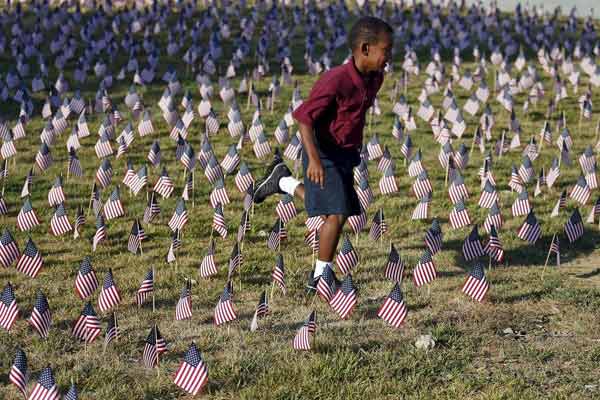US Senate passes bill allowing 9/11 victims to sue Saudi Arabia
(Xinhua) Updated: 2016-05-18 09:47
 |
|
A boy runs through flags to honor victims of the September 11, 2001 attacks, in Santa Clarita, California, September 11, 2015. [Photo/Agencies] |
WASHINGTON -- The US Senate on Tuesday approved legislation that would allow victims of the Sept 11 terror attacks of 2001 to sue Saudi Arabia, US media reported.
The bill, which was passed by a unanimous consent, would allow victims of terror attacks on US soil or surviving family members to bring lawsuits against nation-states for activities supporting terrorism. The legislation will now head to the House of Representatives.
"This bill is very near and dear to my heart as a New Yorker because it would allow the victims of 9/11 to pursue some small measure of justice," Democratic Senator Charles Schumer said, according to news website The Hill.
The White House on Tuesday reiterated President Barack Obama's opposition to the bill.
"Given the concerns we have expressed, it's difficult to imagine the president signing this legislation," White House spokesman Josh Earnest said.
"This legislation would change long-standing, international law regarding sovereign immunity," Earnest said, adding that Obama continues to harbor "serious concerns" that this legislation would make the United States vulnerable in other court systems around the world.
The legislation has also drawn criticism from the Saudi government.
Saudi Arabia has told the Obama administration and members of Congress that it will sell off hundreds of billions of dollars' worth of American assets held by the kingdom if Congress passes the bill, The New York Times reported last month.
Adel al-Jubeir, the Saudi foreign minister, delivered the kingdom's message personally in March during a trip to Washington, telling lawmakers that Saudi Arabia would be forced to sell up to 750 billion US dollars in treasury securities and other assets in the United States before they could be in danger of being frozen by American courts, The New York Times reported.
Families of the Sept 11 victims have used the courts to try to hold members of the Saudi royal family, Saudi banks and charities liable because of what the plaintiffs charged was Saudi financial support for terrorism. These efforts have largely been stymied, in part because of a 1976 law that gives foreign nations some immunity from lawsuits in American courts.







